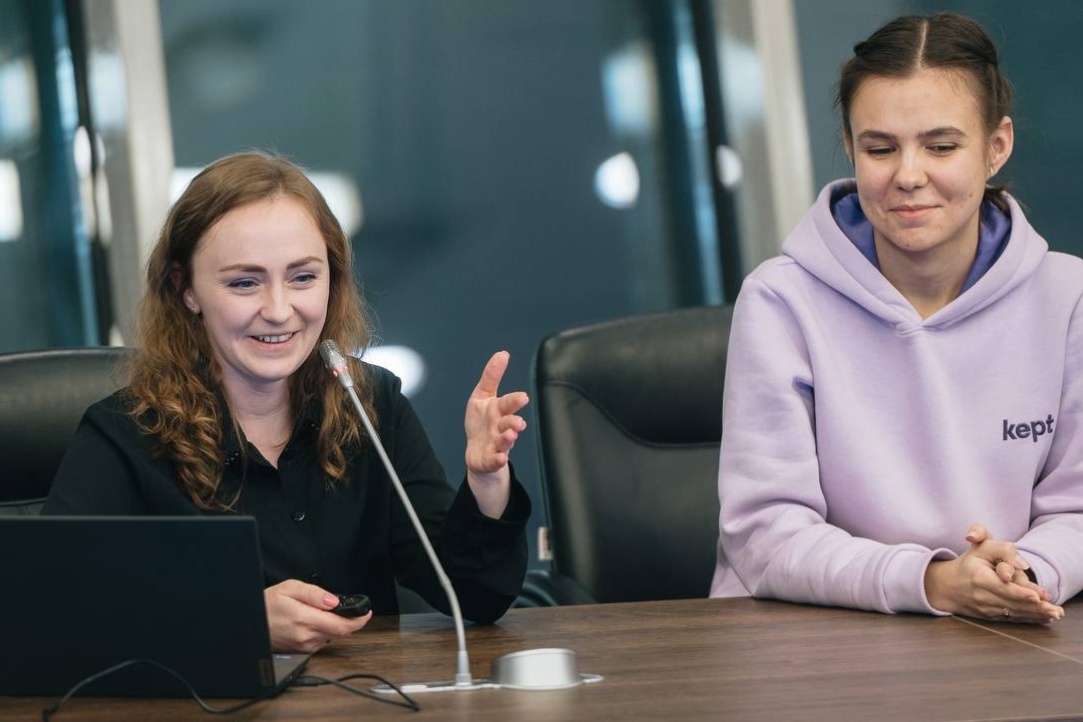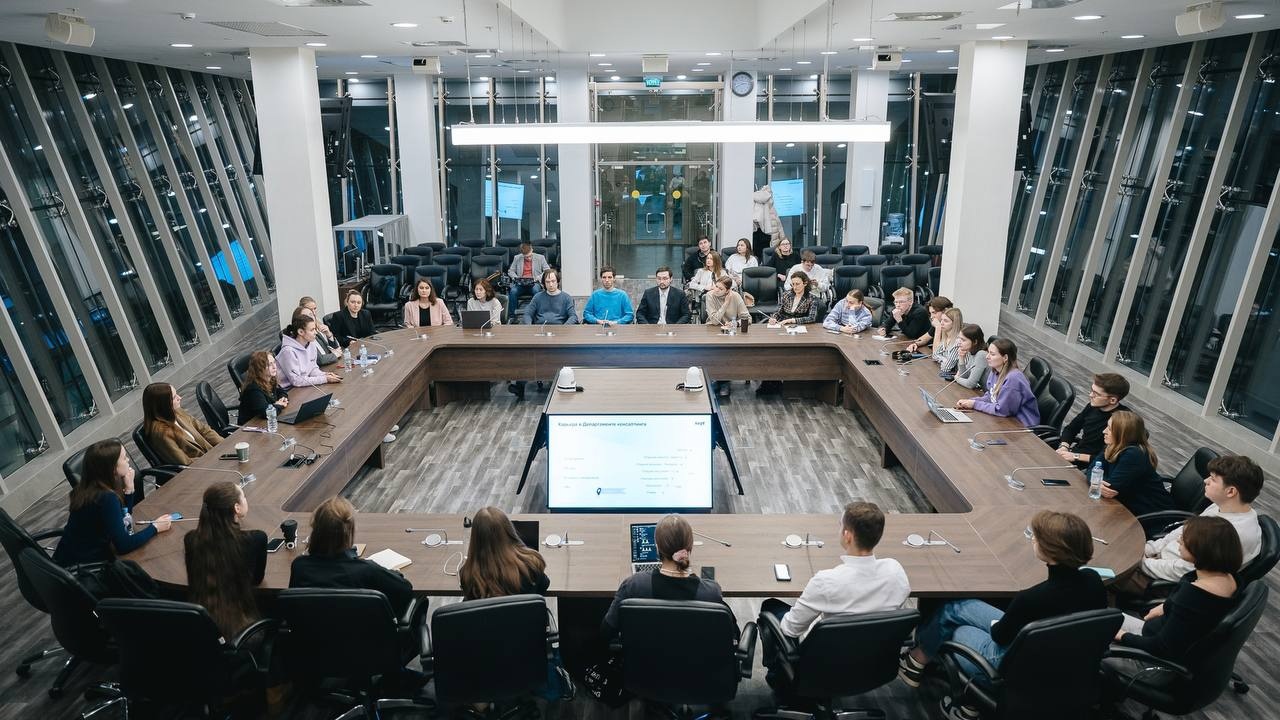'We Are Fanatics, in a Good Sense': A Graduate from HSE University Shares her Consulting Journey

Anastasia Kalugina, a graduate of the HSE Faculty of Economic Sciences, now serves as the Director of the Digital Finance Group at Kept. With over eight years of consulting experience, having progressed from a consultant to a director role, Anastasia shares her journey and insights at a meeting with HSE Alumni. Discover how the demands for hard and soft skills may evolve as your career progresses, learn strategies to prevent burnout, and explore whether it's true that consulting always entails overwork in this feature from HSE News Service.
'I Thought I would Never Venture into that Sphere'
Today, Anastasia Kalugina speaks about her career in consulting with enthusiasm and joy. However, this wasn’t always the case. ‘As a student, I believed consulting entailed exploitation and endless overwork. Consequently, I thought I would never venture into that sphere,' confesses the Director of the Digital Finance Group at Kept.
After graduating from HSE University, Anastasia commenced her career in financial management at a non-consulting company. 'During my first year in the industry, I learned the roles of every employee in the department and could step in for any of them if necessary. Alongside my daily responsibilities, I led a project to implement a new IT system and modify management reporting, in collaboration with the foreign Head Office. Despite this, my work felt routine due to the lack of challenging tasks,' she shares. After two years in the industry, Anastasia Kalugina finally ventured into consulting, joining KPMG (now Kept).
From the hiring stage, she noticed a difference: the selection process lasted over three months, during which various managers evaluated the applicant's technical and soft skills. 'The most interesting phase was the interview with the firm's partner: he did not focus on my technical expertise as much as on my spatial orientation, soft skills, and motivation,' Anastasia recalls.
During her initial three months at the new company, Anastasia focused on acclimating to business processes. However, she was entrusted with project assignments and client negotiations from the outset. 'Consulting introduced me to a novel approach. With projects constantly varying, you learn to negotiate and effectively communicate with diverse clients, to listen attentively, and to pick up on cues,' she explains.
In contrast to broader industry, consulting has clear and specific promotion criteria. 'I was familiar with the responsibilities of the next grade level and consistently aimed to stay one step ahead, actively trying out new roles,' Anastasia notes. This strategy enabled her to progress from consultant to group director in seven years, with a 12-fold increase in income.
Another distinctive aspect of consulting is training employees as versatile specialists. 'Each individual brings their own unique characteristics and excels in particular areas, but at Kept, one is always encouraged to explore new challenges and try different things. If you are good at creating PowerPoint slides, you may be assigned tasks involving Excel calculations, and vice versa. In this way, independent and versatile “soldiers” are cultivated. We call it an army trick,' she explains.

‘Despite initial apprehensions, I found consulting a perfect fit after my first year. People here really care. If we work late, it's not because we are forced to do so, but because we are genuinely involved in our tasks and committed to achieving excellent results for the project. We are fanatics, in a good sense,' Anastasia explains.
Hard Skills and Media Confidence
In financial consulting, the requirements for both soft and hard, or technical, skills continually evolve based on one's position within the company. Teamwork, stress tolerance, and time management are fundamental for early-career professionals. Key technical skills at the outset include proficiency in preparing presentations and working with Excel, competence in handling regulatory documents, and knowledge of business process modelling.
As responsibilities increase, so do skill demands. Delegation becomes crucial. 'Learning to delegate was a challenge for me. It requires trust in your team, and before you can trust them, you must first test them,' Kalugina admits.
Another skill that becomes increasingly vital is public speaking before various audience, ranging from small internal meetings to 500 people and more. The ability to overcome fear and articulate thoughts in a structured manner comes with practice and becomes absolutely essential at the level of senior consultant and beyond. As one's career advances, marketing-related skills are added, including research, organising external events, creating thematic publications, and providing commentary for the media.
At senior managerial levels, there is a strong emphasis on nurturing the company's human capital. In earlier years, managers used to prioritise the organisation of work processes, but today, employee motivation has become one of the highest priorities. 'Employees are the driving force behind the company, and the success of projects depends on their morale and well-being,' Anastasia asserts. It is also essential to understand and forecast the overall financial results of the group, which involves being a proficient analyst. Another technical requirement is staying abreast of industry trends in various sectors to gain a deeper understanding of processes which impact financial performance.
Soft skills gain importance at higher levels. Among the advanced soft skills required in consulting, Anastasia mentions networking, the ability to engage in conversation on any topic from scratch, and media confidence. Media exposure significantly expands the opportunities for promoting one's company or personal brand, primarily by connecting with potential partners and investors. 'Investing in professional development across various domains while also nurturing personal growth is essential,' summarises Anastasia.
Over time, a professional accumulates expertise to the extent that all they need to know before taking on a new client is their company name, sphere of operation, and the theme of their project.
'Burnout Isn't about Overwork; it's about Emotions'
The issue of burnout appears to be a concern for many students and their senior colleagues. 'Burnout isn't solely about overwork or maintaining a work-life balance; it's more about the emotions you experience as you work,' Kalugina argues. Burnout can result from dealing with an uncooperative client or from struggling with a lengthy and difficult project. This can cause an employee to lose their sense of professional value and even undermine their self-worth.
Anastasia recalls one of her subordinates experiencing this type of circumstances. 'The leader's role is crucial here, as they set an example for the entire team. Everyone observes how the leader responds to challenging situations,' Kalugina notes.

The key is to speak up and not face the problem alone. 'Everyone has experienced this in one way or another; none of the supervisors will devalue your attitude towards the situation but will understand and empathise with your emotional and physical state,' she adds. Self-observation is key; you need to carefully monitor yourself, as everyone experiences burnout differently and reacts to different triggers.
'Nothing Can Propel You to New Heights Like Hard Work and Perseverance'
Anastasia advised future graduates not to confine themselves to university knowledge alone, as it may not always encompass all potential fields of activity. 'Many fields remain obscure simply because you are unaware of them, so you need to explore and learn more. The practical expertise we acquire through work is more valuable than mere theoretical knowledge,' according to Anastasia.
Effective communication with your supervisor is vital in the workplace for both preventing burnout and fostering career growth. 'If you don't communicate it, no one will be able to guess what's on your mind,' she notes. This is a fundamental principle not only for communication with employers but for communication in general.
Anastasia Kalugina shared her personal list of principles leading to success, which includes perseverance and hard work, a positive attitude, and the desire to always stay one step ahead.
Anastasia concluded by sharing a selection of useful books recommended by herself and her colleagues at Kept's Digital Finance Group:
- The Minto Pyramid Principle: Logic in Writing, Thinking, & Problem Solving by Barbara Minto
- The 4-Hour Workweek: Escape 9-5, Live Anywhere, and Join the New Rich by Timothy Ferriss
- Start with Why: How Great Leaders Inspire Everyone to Take Action by Simon Sinek
- Antifragile: Things That Gain from Disorder by Nassim Nicholas Taleb
- Rules of Life and Business by Igor Mann
See also:
‘A True Leader Is Someone Who Strives to Make a Better World’
Ten years ago, HSE University established a Joint Department with McKinsey&Company, a global consulting company. McKinsey partners teach three courses in the programme, and they intend to expand their collaboration with the university. Vitaly Klintsov, McKinsey Managing Partner for Russia and CIS countries, spoke with HSE News Service about why he likes teaching and what qualities make a modern leader.
‘Listen to Your Inner Voice When Choosing Your Life's Path’
Evgenia Kondrashina graduated with honours from the International College of Economics and Finance (ICEF) bachelor’s programme in 2005 before going on to receive her master’s from the London School of Economics. An excellent student, Evgenia for a long time thought that the next logical step would be a prestigious career at a top English consulting firm, but the idea of following in others’ footsteps doesn’t make everyone happy. Evgenia deviated from this trajectory and found herself in one of the world’s leading orchestras – the London Symphony Orchestra – where she continues to work today.


